How to Avoid Problem Tenants: Essential Tips for Jupiter Landlords
Being a landlord in Jupiter, Florida, can be a rewarding experience, but it comes with its own set of challenges, particularly when it comes to selecting the right tenants. The wrong tenant can cause financial strain, legal complications, and emotional stress. Fortunately, there are proven strategies that landlords can adopt to reduce the risk of renting to problematic tenants. This guide provides practical advice, actionable steps, and key insights to help landlords avoid problem tenants and ensure smooth, profitable property management.
Understanding the Risks of Problem Tenants
Before delving into how to avoid problem tenants, it’s essential to understand the common issues that arise from renting to unreliable or troublesome tenants. Problematic tenants can lead to:
Late or Missed Rent Payments: One of the most frequent issues landlords face is tenants who don’t pay their rent on time. This can disrupt your cash flow and potentially affect your ability to meet mortgage obligations or maintain the property.
Property Damage: Some tenants may not treat your property with the care it deserves, leading to expensive repairs and potentially devaluing your investment.
Legal Disputes: Problem tenants often lead to costly legal battles, whether related to eviction, non-payment, or violating lease terms. Navigating these issues can be both time-consuming and financially draining.
Noise and Disturbance: Tenants who frequently cause disturbances can affect the peace of the neighborhood, leading to complaints from neighbors and other tenants. This can harm your property’s reputation.
Neglect of Maintenance: A tenant who is negligent about basic maintenance responsibilities, like cleaning or reporting necessary repairs, can lead to larger issues in the future.
By understanding these risks, you can put preventive measures in place to avoid them. Now, let’s explore how to avoid such issues by carefully screening potential tenants.
The Importance of Thorough Tenant Screening
The foundation of successful tenant management starts with thorough screening. A good screening process will help you identify red flags early on, minimizing the likelihood of problem tenants in your property. Here are the essential components of a comprehensive tenant screening process:
1. Credit Check
A credit check provides insight into a tenant’s financial responsibility. This step can reveal whether the tenant has a history of paying bills on time, how much debt they have, and whether they’re likely to struggle with rent payments in the future. A high credit score typically indicates that a tenant is financially reliable. However, don’t just rely on the score itself; pay attention to any patterns of late payments or defaults in the report.
2. Background Check
Conducting a background check is essential for identifying any criminal history or past eviction records. A tenant with a criminal background, especially related to theft, violence, or drug offenses, can pose a risk to your property and other tenants. An eviction record is also a significant red flag, as it indicates the tenant has previously failed to meet lease obligations.
3. Rental History Verification
One of the best indicators of a tenant’s future behavior is their past rental history. Contact previous landlords to verify the tenant’s reliability. Ask specific questions about whether they paid rent on time, maintained the property well, and followed the terms of the lease. If the previous landlord is unwilling to provide a reference, it could indicate potential problems with the tenant.
4. Income Verification
Ensuring that a potential tenant can afford the rent is crucial. While a tenant’s credit score gives some indication of financial responsibility, verifying their income will help confirm their ability to consistently pay rent. Typically, a tenant should earn at least three times the monthly rent. Be sure to request recent pay stubs, tax returns, or bank statements to verify income.
5. Interviewing the Tenant
A face-to-face interview can provide additional insights into a potential tenant’s personality and suitability for your property. Use the interview to gauge the applicant’s attitude, responsibility, and reliability. While you cannot legally discriminate based on certain characteristics (such as race, religion, or gender), the interview can help you understand whether the tenant’s expectations and lifestyle align with your property’s needs.
Also read Best Practices for Conducting Tenant Background and Credit Checks
Setting Clear Lease Terms
Once you’ve selected a reliable tenant, it’s time to ensure that both parties are clear on the terms of the lease. Setting up clear and detailed lease agreements is crucial to avoiding misunderstandings and conflicts. A solid lease can serve as a legal document in case of disputes and set expectations for both parties.
1. Be Clear on Rent Payment Terms
Clearly outline the amount of rent, when it’s due, and the consequences for late payments. For instance, include late fees if rent isn’t paid within a specific time frame (e.g., after five days). Be sure to explain acceptable payment methods, whether it’s via check, bank transfer, or online payment systems. A clear rent structure reduces the risk of late payments or misunderstandings.
2. Define Maintenance Responsibilities
Clearly outline the responsibilities of both the landlord and the tenant when it comes to property maintenance. Specify who is responsible for routine tasks like lawn care, garbage disposal, and basic repairs. Clarify how tenants should report maintenance issues and what happens if they neglect their duties. If a tenant fails to maintain the property, you’ll have clear documentation for any necessary action.
3. Include Pet Policies
If pets are allowed, outline the type of pets allowed (size, breed, etc.), any pet deposits, and the tenant’s responsibility for cleaning up after their pets. If pets are not allowed, ensure the lease reflects this clearly to avoid potential issues with tenants attempting to keep pets without permission.
4. Outline Terms for Early Termination and Eviction
While no one wants to imagine eviction, it’s important to include clear terms for early lease termination and eviction procedures. Specify the conditions under which the lease can be terminated (such as failure to pay rent or property damage), and explain the steps involved in eviction if necessary. This transparency can discourage potential tenants with less-than-ideal intentions from applying.
By setting clear lease terms upfront, you reduce the risk of issues later on and provide both parties with a clear understanding of expectations.
Establishing a Consistent Communication Strategy
Good communication is one of the most effective ways to prevent tenant problems from escalating. Regular communication helps you stay on top of any issues, whether they relate to rent, maintenance, or property concerns. Here are several tips for effective communication with your tenants:
1. Be Available for Communication
As a landlord, it’s important to make yourself available to your tenants when they need to reach you. Set clear expectations for when and how tenants can contact you. This could be via phone, email, or a property management app. Being responsive to tenant inquiries fosters goodwill and encourages tenants to take issues seriously before they escalate.
2. Address Problems Early
Don’t wait for small issues to grow into bigger problems. If a tenant is late on rent or the property needs repairs, address the situation immediately. The sooner you act, the more likely it is that the problem can be resolved before it gets out of hand.
3. Conduct Regular Inspections
Performing regular property inspections ensures that the tenant is maintaining the property according to the lease terms. Inspections also give you an opportunity to identify issues before they become more serious or costly. Always give tenants proper notice before entering the property to respect their privacy.

Get a Free Rental Analysis
Want to know how much your home will rent for? We’ll send you a free rental report!
Effective Strategies for Managing Tenant Relationships and Preventing Issues
Building a strong landlord-tenant relationship is key to ensuring that potential issues don’t escalate into major problems. While tenant screening and setting clear lease terms are crucial for avoiding problem tenants, how you manage your relationship with tenants throughout the lease term also plays an essential role in minimizing conflicts and ensuring a smooth renting experience. In this section, we will focus on strategies for managing tenant relationships effectively and maintaining a positive environment for both parties.
Building Positive Relationships with Tenants
A good relationship with your tenants is not only important for maintaining a harmonious living environment but also for ensuring the longevity of your rental agreement. Happy tenants are less likely to cause trouble and more likely to stay longer, reducing turnover and vacancy rates. Here’s how to foster positive relationships:
1. Respect Tenant Privacy
One of the most important factors in tenant satisfaction is respecting their privacy. Tenants have the right to live in the property without unwarranted intrusion, so be sure to provide the required notice before entering the premises for inspections, repairs, or any other reason. Respecting their space shows that you value them as individuals and helps establish trust.
2. Maintain Clear and Open Communication
Consistent communication is crucial for preventing misunderstandings. Be clear, honest, and approachable when discussing any issues with your tenants. Let them know how to contact you for emergencies, maintenance requests, or even general inquiries. Regular communication can help address small problems before they escalate and keeps the lines open for any concerns they may have.
3. Be Proactive About Maintenance and Repairs
A proactive approach to property maintenance can prevent small problems from turning into bigger issues. Schedule routine maintenance tasks, such as HVAC servicing, pest control, and plumbing inspections, and inform tenants about them in advance. Promptly address tenant-reported repairs and maintenance issues, as ignoring these requests can lead to dissatisfaction and possible legal complications. Tenants appreciate landlords who are responsive and maintain the property in good condition.
4. Provide a Welcome Package
Especially for new tenants, offering a welcome package can go a long way in creating a positive first impression. The package could include essentials such as information on local services, a list of emergency contacts, maintenance procedures, and instructions for using appliances. Small gestures like this make tenants feel appreciated and more likely to be conscientious throughout the lease.
5. Establish Trust through Fairness
Treating tenants fairly and equally is vital for creating a trustworthy relationship. Avoid favoritism or unfair treatment. Ensure that all tenants are held to the same standards when it comes to rent payments, maintenance responsibilities, and adherence to lease terms. This fairness promotes respect and a sense of stability for tenants.
Dealing with Problematic Situations
Despite your best efforts, there may be times when issues arise that require a more direct approach. Knowing how to deal with difficult situations effectively can prevent problems from spiraling out of control and maintain a good rapport with your tenants. Here are a few strategies for handling tenant disputes and problematic situations:
1. Address Issues Promptly and Professionally
When a problem arises, whether it’s late rent payments, noise complaints, or damage to the property, address it as soon as possible. Delaying the resolution of issues can lead to more significant problems later. Always approach the situation professionally, and avoid letting emotions take over. Stay calm and focused on finding a solution that works for both you and your tenant.
2. Use Written Communication for Important Issues
While verbal communication is important, it’s essential to document all important interactions with your tenants in writing. This includes late rent payments, maintenance requests, or warnings for lease violations. Written documentation protects you legally and provides a record of all communications should the situation escalate to legal action.
3. Offer Payment Flexibility (When Necessary)
Occasionally, tenants may face financial hardship that affects their ability to pay rent on time. Instead of rushing into eviction, consider offering a payment plan or temporary relief. While this isn’t always an option, being flexible can preserve the landlord-tenant relationship and keep tenants from becoming problem tenants in the future. It may also increase the likelihood of receiving rent payments in full over time.
4. Consider Mediation for Disputes
If conflicts arise that cannot be resolved through direct communication, mediation can be a viable alternative. Mediation involves a neutral third party who helps facilitate a resolution between both parties. Many disputes, such as disagreements over damage, rent, or tenant behavior, can be resolved through mediation without needing to go through a lengthy eviction process. Mediation is often less costly and less stressful than formal legal action.
Setting and Enforcing Clear Expectations
Clear expectations are vital in preventing misunderstandings between landlords and tenants. Both parties should be on the same page when it comes to the rules and responsibilities associated with the rental agreement. Here are strategies for setting and enforcing those expectations:
1. Review the Lease Agreement Regularly
It’s essential to regularly review the lease agreement with tenants to ensure that they understand the terms. This is especially important when tenants renew their lease or when there are significant changes to the property or lease terms. A clear understanding of the lease minimizes the likelihood of violations and fosters mutual respect.
2. Enforce the Lease Terms Consistently
Once the lease agreement is in place, it’s important to enforce its terms consistently and fairly. If tenants violate the lease agreement, such as by paying rent late or keeping unauthorized pets, take appropriate action promptly. Consistency in enforcement prevents tenants from taking advantage of leniency and ensures that the property is managed effectively.
3. Create a House Rule Policy
In addition to the lease, a house rule policy can help reinforce the expectations for tenants. This can include guidelines for noise levels, guest policies, or parking arrangements. A clearly defined set of house rules helps tenants understand what’s expected of them and what is considered unacceptable behavior in the property.
4. Clarify Maintenance and Repair Procedures
Set expectations for how tenants should report maintenance issues and the timeline for addressing repairs. A clear process for handling repairs can reduce frustration on both sides and ensure that necessary tasks are addressed efficiently. It’s also helpful to provide tenants with a list of maintenance professionals they can contact for emergencies when needed.
Understanding the Legal Framework for Landlords
While maintaining good relationships with tenants and setting clear expectations can prevent many issues, it’s equally important for landlords to understand the legal framework that governs landlord-tenant relationships. Florida has specific laws that protect both landlords and tenants, and being aware of these laws can help you navigate disputes and legal challenges.
1. Know the Florida Landlord-Tenant Law
Familiarize yourself with Florida’s Landlord-Tenant Law (Chapter 83 of the Florida Statutes), which outlines the rights and responsibilities of both landlords and tenants. Understanding these laws helps ensure that you’re in compliance and can protect your property legally if issues arise. For example, Florida law dictates the procedures for eviction, notice periods, and security deposits, all of which should be clearly defined in your lease.
2. Ensure Legal Eviction Procedures
Eviction is a last resort, but knowing the legal process for eviction can help you handle situations when tenants fail to comply with the lease. Florida law requires landlords to follow specific steps when evicting a tenant, such as providing proper notice and filing an eviction lawsuit in court. Failure to follow these procedures can result in delays or even the invalidation of the eviction.
3. Understand Security Deposit Regulations
Florida law regulates how landlords must handle security deposits, including the time frame for returning the deposit after a tenant moves out and the conditions under which deductions can be made. Ensure you comply with these regulations to avoid disputes and potential legal action.

Managing Challenging Situations and Navigating Legal Risks
Even with the best strategies in place, challenging situations may arise. It is important to be prepared to handle these issues professionally and effectively, while also minimizing legal risks. In this section, we will explore how to manage difficult tenant situations, how to mitigate the risk of legal action, and how to navigate the eviction process when absolutely necessary.
Dealing with Late Rent and Non-Payment
Late rent payments are one of the most common issues faced by landlords. While it can be frustrating, it’s important to handle late payments professionally and legally. Taking proactive steps can help resolve issues without resorting to eviction. Here’s how to deal with late rent and non-payment:
1. Send a Friendly Reminder
If a tenant is late on their rent, start by sending a friendly reminder. Many tenants may simply forget or have a temporary issue that delayed the payment. A polite reminder can often solve the issue without further escalation. Be sure to check your lease agreement for the specific grace period or penalties for late payments, as this can guide your communication.
2. Communicate Clearly and Offer Solutions
If the rent remains unpaid after the reminder, contact the tenant to discuss the situation. Sometimes tenants may face unexpected financial difficulties. Offering a payment plan or an extension might help them catch up on overdue rent. Open and respectful communication can help resolve the issue without damaging your relationship with the tenant.
3. Charge Late Fees as Outlined in the Lease
If the lease agreement includes late fees, it’s important to charge them when rent is overdue. Consistently enforcing the agreed-upon late fees ensures that tenants take their payment obligations seriously and demonstrates that you are serious about managing the property. However, make sure that the fees are reasonable and in line with Florida’s landlord-tenant laws.
4. Consider Formal Legal Action if Necessary
If the tenant fails to pay rent for an extended period, and communication has not resulted in a resolution, you may need to take more formal action. Florida law provides specific procedures for dealing with non-payment, including serving a “3-Day Notice” demanding payment or vacating the property. This notice is the first step in the eviction process, and it should be given in writing and delivered according to the law.
Handling Tenant Damage to Property
Property damage, whether intentional or accidental, can create significant challenges for landlords. However, handling property damage appropriately can help prevent disputes and minimize financial losses. Here’s how to approach tenant damage:
1. Document the Condition of the Property
Before tenants move in, conduct a thorough inspection of the property and document its condition. Take photographs and note any existing damage. This serves as a baseline for evaluating the property when tenants move out. Additionally, document any maintenance issues during the lease term. If damage occurs, this documentation can be crucial when it comes time to assess repairs and charge for damages.
2. Inspect the Property Regularly
Routine property inspections can help catch minor issues before they become major problems. Schedule inspections with proper notice as required by Florida law, typically 12 hours in advance. Inspections also provide an opportunity to check for damages or violations of the lease agreement. Be sure to involve the tenant during the inspection to avoid misunderstandings or accusations of invasion of privacy.
3. Use the Security Deposit for Repairs
When tenants damage the property, landlords are allowed to use the security deposit to cover repair costs, as long as the damage goes beyond normal wear and tear. In Florida, landlords are required to return the security deposit or provide an itemized list of deductions within 15 days of the tenant moving out. Keep records of the repairs and include them in the itemized list. If the damage exceeds the security deposit, you may need to pursue additional compensation through the courts.
4. Resolve Disputes Professionally
If a tenant disputes the charges for damages, it’s important to remain professional and calm. Provide them with a detailed breakdown of the repairs and costs. If an agreement cannot be reached, consider mediation as an alternative to going to court. Mediation can help both parties reach a mutually acceptable solution without the time and expense of litigation.
Navigating the Eviction Process
Eviction is the last resort when dealing with problematic tenants. While it is often an emotionally charged process, understanding the legal steps and following the appropriate procedures is essential for protecting your rights and avoiding unnecessary complications.
1. Know the Grounds for Eviction in Florida
Florida law allows landlords to evict tenants for a variety of reasons, including non-payment of rent, violation of lease terms, or the end of a lease term without renewal. Before beginning the eviction process, you must have a valid legal reason, and you must follow the correct procedures to ensure the eviction is enforceable.
2. Serve the Proper Notices
The eviction process begins with the appropriate notice. For non-payment of rent, Florida requires a “3-Day Notice” demanding payment or vacating the property. For lease violations or other breaches, a “7-Day Notice” may be used. Ensure that you follow the law when delivering these notices, as improper notice can delay the eviction process or render it invalid.
3. File the Eviction Lawsuit (if Necessary)
If the tenant does not resolve the issue within the notice period, you may file an eviction lawsuit in county court. The court will review the case, and if the judge rules in your favor, they will issue a writ of possession, which allows you to remove the tenant from the property.
4. Consider Alternative Dispute Resolution
While eviction may seem like the most straightforward option, it is often costly and time-consuming. Before filing an eviction lawsuit, consider other dispute resolution options, such as mediation or negotiating with the tenant. In some cases, this approach may lead to a mutually agreeable solution that avoids the need for court intervention.
5. Understand the Eviction Timeline
The eviction process can take anywhere from several weeks to a few months, depending on the circumstances. Be prepared for delays, especially if the tenant contests the eviction. Throughout the process, continue to follow all legal steps and keep accurate records of all communications and actions.
Minimizing Legal Risks
Eviction and tenant disputes can expose landlords to legal risks. By understanding your rights and responsibilities and following proper procedures, you can minimize these risks and protect yourself legally. Here are some key tips for managing legal risks:
1. Stay Informed About Local Laws
Landlord-tenant laws vary from state to state and even by city or county. It is essential to stay up-to-date on the legal requirements in your area, including rent control regulations, eviction procedures, and security deposit rules. Consulting with a local attorney or property management expert can help ensure that you are compliant with all applicable laws.
2. Use Well-Drafted Lease Agreements
A well-written lease agreement is your first line of defense against legal disputes. Ensure that your lease is comprehensive and covers essential details such as rent payment schedules, maintenance responsibilities, and eviction procedures. Make sure the lease complies with Florida’s landlord-tenant laws to avoid legal issues down the road.
3. Document Everything
Documentation is crucial when managing rental properties. Keep detailed records of all communications with tenants, maintenance requests, and payment histories. This documentation can be invaluable in the event of a dispute, providing evidence of your efforts to resolve issues fairly and professionally.
4. Seek Professional Legal Assistance When Necessary
If you find yourself in a complex situation or dealing with a difficult tenant, don’t hesitate to consult with an attorney. A real estate attorney specializing in landlord-tenant law can help you navigate difficult legal situations, including eviction proceedings or disputes over security deposits. Having legal support can help you avoid costly mistakes and reduce your exposure to liability.
By handling challenging situations with professionalism and legal knowledge, landlords can minimize the stress and financial loss that often comes with problematic tenants. Effective communication, timely resolution of issues, and adherence to legal requirements will ensure that you can navigate these situations smoothly while maintaining a good landlord-tenant relationship.
Suggested Helpful links:
How to Handle Tenant Issues Like a Pro
Rent Collection Services Palm Beach
How to Increase Tenant Retention in Palm Beach Gardens
How Market Trends Shape the Perfect Lease Agreement
The Complete Guide to Tenant Rights and Landlord Responsibilities in Jupiter, FL



